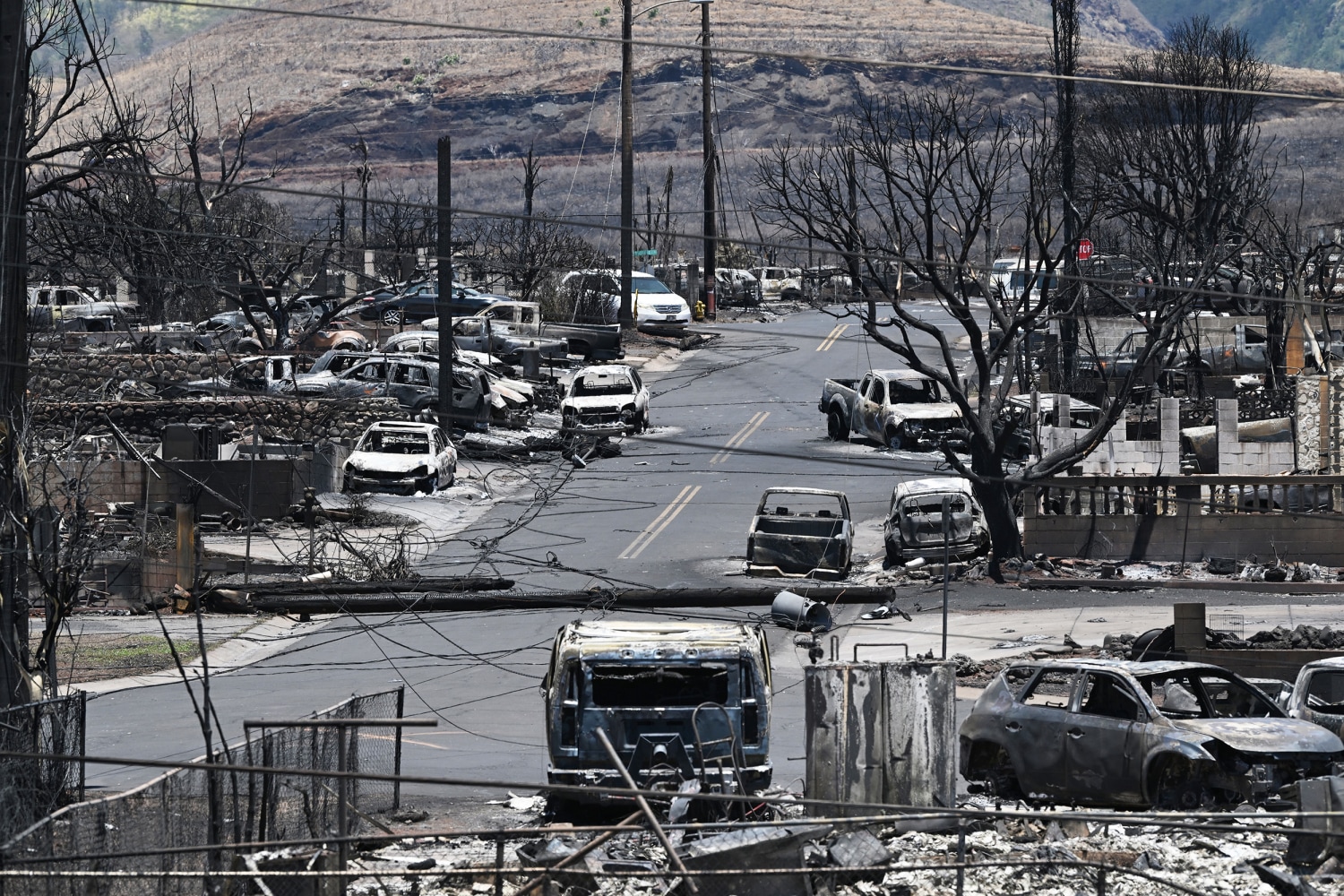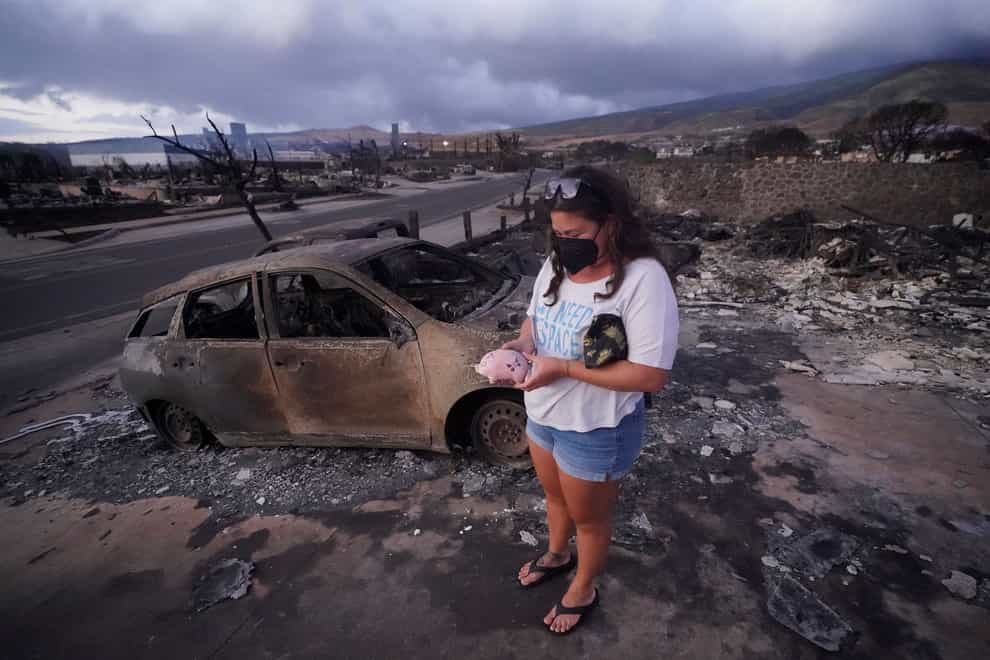Exploiting Grief, The Opportunistic Threat to Maui’s Wildfire Survivors; Land Grabbers Begin Their Hunt!
In the aftermath of the devastating wildfire that swept through Maui, a darker threat emerges amidst the ashes- Land Grabbers. These opportunists prey on vulnerability and exploit the grief of survivors. The harrowing experience of loss, displacement, and shattered lives creates a fertile ground for these unscrupulous individuals to exploit, offering false promises of aid and recovery. As the community grapples with the physical and emotional devastation, it's crucial to understand how and why these opportunists target the grief-stricken, but the collective resilience and unity shine brighter than the shadows they cast.

Land Grabbers Begin Their Hunt
In the heart of Maui’s scorched landscape, a profound concern now grips the hearts of those who call this place home. As the ashes settle, the specter of opportunistic land seizure looms, igniting old wounds and causing collective distress among the local community.
Opportunists are drawn to places of vulnerability like moths to a flame, and the aftermath of the devastating Maui wildfire is no exception. Grief-stricken and emotionally raw, the survivors find themselves exposed to a particularly insidious breed of individuals who view tragedy as an exploitable opportunity.

In the case of the Maui wildfire, the destruction left in its wake is not only physical but also emotional; lives were lost, families torn apart, and a sense of security shattered.
However, opportunists are a different breed altogether, for it is in these moments of desolation that they sense a chance to capitalize on the pain of others. They understand that grief can cloud judgment, making survivors susceptible to manipulation and deceit.
Thus, it is no surprise that the scorched remains of homes have become a backdrop for these predators as they swoop in with false promises of aid and quick solutions, preying on the desperation of those struggling to rebuild their lives.
Furthermore, the lack of immediate resources and the slow arrival of assistance create a void that opportunists are all too eager to fill. When financial aid, insurance claims, and other forms of support are delayed, survivors can find themselves in dire need. Opportunists seize this window of desperation, offering quick solutions that may come at an exorbitant cost.

The Devastating Experience
Kaniela Ing, a dedicated advocate for the Native Hawaiian community, speaks with a voice imbued with generations of history. His family’s ties to Maui stretch back seven generations, and he reverberates the shared fear that the encroachment of predatory opportunists is not just a looming threat, but a recurring tragedy etched into the fabric of time. “With each crisis,” he laments, “the shadows of dispossession lengthen.”
In the wake of a devastating wildfire that claimed countless lives and displaced thousands, the people of Maui gathered in solidarity. Amidst their grief, an unwavering determination takes root—a resolve to stand as a shield against those who would seize opportunity from catastrophe.
They harness the power of social media to broadcast their impassioned pleas, urging vigilance against profiteers eyeing the ruins where the remains of their loved ones still linger.

Historical Scars
The scars of history run deep, and the soul of Hawaii carries the weight of generations unjustly dispossessed. The year 1893 marked a wrenching chapter when the harmony of the islands was shattered by outsiders, causing the downfall of Queen Lili’uokalani and the seizure of ancestral lands.
Today, these wounds remain open, aching with memories of the past’s injustices. The echoes of foreign dominance continue to reverberate, as ancestral lands are gradually spirited away.
Sterling Higa, a guardian of the north side of Maui, speaks with empathy born from shared experience. He notes the ongoing struggle, the heartache of families pushed out from homes that carried their stories for generations.
The tranquil Lahaina region has been particularly vulnerable, as the influx of wealthier outsiders inflates housing costs beyond the means of locals. Higa’s words resonate like an elegy, a dirge for the intimate bond between a people and their land.

The Helping Hand
But amidst the grief and the fear, a spark of hope ignites. The government extends its hand, vowing unwavering support. Governor Josh Green’s voice trembles with sincerity as he commits to preserving the connection between the people and their land. His words are a balm to a community that has endured so much. He pledges to halt transactions threatening to displace the traumatized, sending a clear message to those who might capitalize on tragedy.
The government’s stance is echoed by agencies that emerge as sentinels of justice. The Department of Commerce and Consumer Affairs issues a call to exercise caution against unscrupulous offers, vowing to pursue justice for any wrongdoing. Their promise rings with a commitment to right the wrongs that have festered for too long.
Yet, skepticism persists, and Kaniela Ing’s words resonate. A deep-rooted mistrust of larger institutions remains embedded in the collective psyche. The wounds of history are not easily healed, and the government’s good intentions must be measured against this history of betrayal.
Despite this caution, Ing emphasizes the power of unity and community-driven action. In the midst of crisis, volunteers like Ing, joined by a multitude of local hearts, take it upon themselves to offer solace, to understand individual needs, and to stand as a beacon of hope in the face of adversity.
Governor Green, recognizing the importance of legal protection, assures the people of Maui that they will not stand alone. Legal aid from local attorneys will be at the ready to ensure justice prevails, echoing the commitment to upholding the rights of the affected.

We Stand United
In this time of dire need, the call goes out for assistance. It is a plea for unity, for support not from outside profiteers, but from compassionate souls who seek to alleviate suffering. The path to rebuilding is fraught with obstacles, but the resilience of the community shines through.
Locals and those far beyond the island’s shores rally to provide direct aid to impacted families, to ensure their survival and shield them from the pressures of selling.
Through this struggle, the heart of Maui beats as one. In unity, in the shared knowledge of pain and perseverance, they affirm their commitment to protect one another.
The words of Kaniela Ing encapsulate this spirit—a spirit that refuses to let history repeat itself. It’s a spirit that proclaims, “We protect our own,” a declaration of love, resilience, and the enduring power of community.
The Last Bit, a community’s resilience is never more evident than when it faces adversity. Though wounded, the survivors of Maui’s wildfire stand firm against the opportunistic threat that seeks to compound their pain.
As they rebuild their lives and restore their community, the survivors of Maui’s wildfire prove that the strength of unity can outshine even the darkest intentions of those who want to capitalize on their pain and loss.




